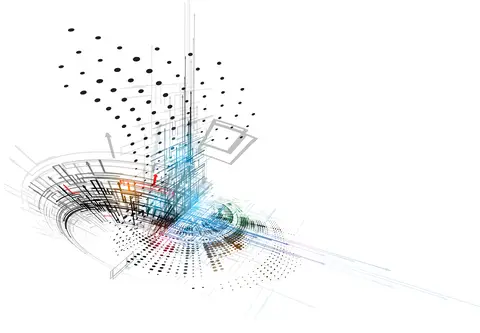 When I started my business in the early 1980s and bought a desktop computer and fax machine, I thought technology had reached a pinnacle. Then came the Internet, smartphones, and tablets. Now there are new technology developments impacting the workplace. Often technologies are first used by large companies, but it doesn’t take long for adoption by small businesses. Here are some technology developments that may soon be in your workplace.
When I started my business in the early 1980s and bought a desktop computer and fax machine, I thought technology had reached a pinnacle. Then came the Internet, smartphones, and tablets. Now there are new technology developments impacting the workplace. Often technologies are first used by large companies, but it doesn’t take long for adoption by small businesses. Here are some technology developments that may soon be in your workplace.
Artificial Intelligence (AI)
AI via software and devices is being utilized by a growing number of businesses to do a wide range of activities. Using data analysis, AI can, for example, help find job candidates, assessing employee job satisfaction, and monitor how they’re doing their jobs. For example, AI can be used to alleviate the task of reading resumes, which takes a lot of time, in order to identify the most promising job candidates that a manager can then interview and make a hiring decision. It can also be used to track an employee’s location using a radio badge designed to prevent access to certain areas or monitor time spent in the cafeteria or at work.
Examples include:
- Bluvision to provide radio badges
- SAP’s Resume Matcher, still in the testing stage, to understand job descriptions and review resumes
- Veriato to analyze employee behavior and attitudes
There is, of course, concern about privacy issues. Some companies ask employees to sign agreements stating that they know their activities are being monitored. Also, because AI is new, it’s not certain whether any decision-making it does is better than what humans can do.
Microchip implants
Are you “chipped”? It’s been reported that a Swedish company, Epicenter, and some others in Europe are implanting a microchip in a worker’s hand to function like a swipe card. It gives workers access to buildings and offices, and enables them to operate certain equipment, such as office printers. The microchip is the size of a grain of rice. Employees say that the convenience it affords outweighs concerns about privacy (the chip can track an employee’s location and count the number of bathroom breaks). And what happens when an employee leaves? Is the chip removed? Disabled?
Other technology trends
We already know about drones, robots, self-driving vehicles, and chatbots. But there are many other new technologies in use or on the horizon with which we may not be familiar. Gartner has a free one-hour webinar on the top 10 strategic technology trends for 2017. They fall into three categories—intelligent, digital, and mesh—and include:
- Advanced machine learning and AI
- Intelligent apps
- Intelligent things
- Augmented & virtual reality
- Digital twin
- Blockchain & distributed ledger
- Conversational systems
- Digital technology platforms
- Mesh app & service architecture
- Adaptive security technology
I confess that I don’t understand any of this. I do understand that I, and other business owners, need to learn more in light of such statements from Gartner that “by 2020, 20% of enterprises will employ dedicated people to train neural networks.”
Conclusion
I’m no expert in technology and rely on an IT person for help for the smallest things. What I do know is that new technology is coming into the workplace, and small business owners should be on the lookout for those that can be of help to their companies.


